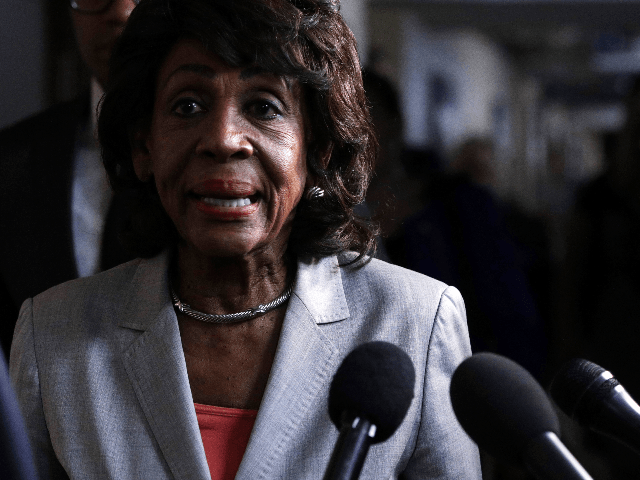Advocates of man-made climate change believe that it causes strong storms, rising tides, and hot temperatures, and that black communities are disproportionately hurt by the effects of “global warming.”
That was the topic at a recent roundtable discussion in Washington, DC, where Bloomberg Environment reported that activists at the event said Congress needed to take action.
“People of color have always been on the front line of this movement,” Alaina Beverly, a former Obama White House urban affairs official who is now vice president for urban affairs at the University of Chicago’s Office of Federal Relations in Washington, said at the event. “We’re hit first and hit worst.”
“This is our issue,” Beverly said.
Bloomberg Environment reported on how blacks are allegedly suffering from climate change-related hardships:
Most of the worst effects of climate change are hitting—and lingering in—poor black neighborhoods in the South, according to the Rev. Leo Woodberry, executive director of the New Alpha Community Development Corporation in Florence, S.C.
In coastal South Carolina, for example, residents in largely black towns have been told they won’t be eligible for flood insurance if they don’t elevate their homes; but a survey of local engineering groups showed the cost starts at $20,000 for a 900-square-foot house, Woodberry said.
In New York City, many residents who die from heat stroke are African American, Peggy Shepard, executive director of West Harlem Environmental Action Inc., also known as WE ACT for Environmental Justice, said at a Sept. 12 roundtable hosted by the Congressional Black Caucus Foundation, where Beverly and Woodberry also spoke.
“This is about social disruption,” Shepard said. “Extreme heat is killing thousands every year.”
Bloomberg Environment cited a University of California at Berkeley study that said blacks are 52 percent more likely than whites to live in so-called “urban heat islands,” where the sun beams down on brick, concrete and asphalt.
“There’s no question that this is a topic area that black politicians, including the CBC [Congressional Black Caucus], have not focused on as much,” Thomas A. LaVeist, dean of Tulane University’s School of Public Health and Tropical Medicine, said in an interview. “And I think it’s because the stereotype is that the environment is about tree hugging or saving exotic birds.”
“Members of the Congressional Black Caucus say they’ve heard the call and are working on solutions,” Bloomberg Environment reported. “The caucus is made up of 55 African American members of the House and Senate.”
“I think we’re going to be energetic in supporting any legislation that is aimed at improving the environment, but I also have to tell you how congested the major issues have become,” Rep. Emanuel Cleaver (D-MO) said in the Bloomberg Environment article.
Cleaver said lawmakers could add language to the Federal Emergency Management Agency’s (FEMA) budget to put resources in poor black communities, and the National Flood Insurance Program could add more protections for black communities.
Bloomberg Environment reported that some are already putting out legislation with this goal in mind, including Reps. Maxine Waters (D-CA), Raul Grijalva (D-AZ) and A. Donald McEachin (D-VA).
“For African Americans and people living in urban poor communities, it provides them with an empowerment tool to enforce the law, to demand action, and to try to get remediation done,” Grijalva told Bloomberg Environment.
“Separately, Rep. Kathy Castor (D-Fla.), chairwoman of the House Select Committee on the Climate Crisis, is working on a climate bill to be rolled out in March that, among other things, will aim to help communities of color living near pollution sources,” Bloomberg Environment reported. “Many House Democrats think there’s value in putting these measures up for a vote, even if they have little chance in the Senate now, to send a message.”
The article also quoted Rep. Alexandria Ocasio-Cortez (D-NY) about her Green New Deal resolution that puts social justice even above climate change.
“I think it’s backwards and shortsighted to say, ‘Well, let’s just throw a bunch of solar panels on everyone’s roof and call it a day,’” Ocasio-Cortez said. “Because you cannot build a winning political coalition to fight climate change on just technocratic solutions.”
“By fighting for the actual justice and livelihood of working people, you are going to create the political energy to actually address climate change,” she said.
Follow Penny Starr on Twitter

COMMENTS
Please let us know if you're having issues with commenting.